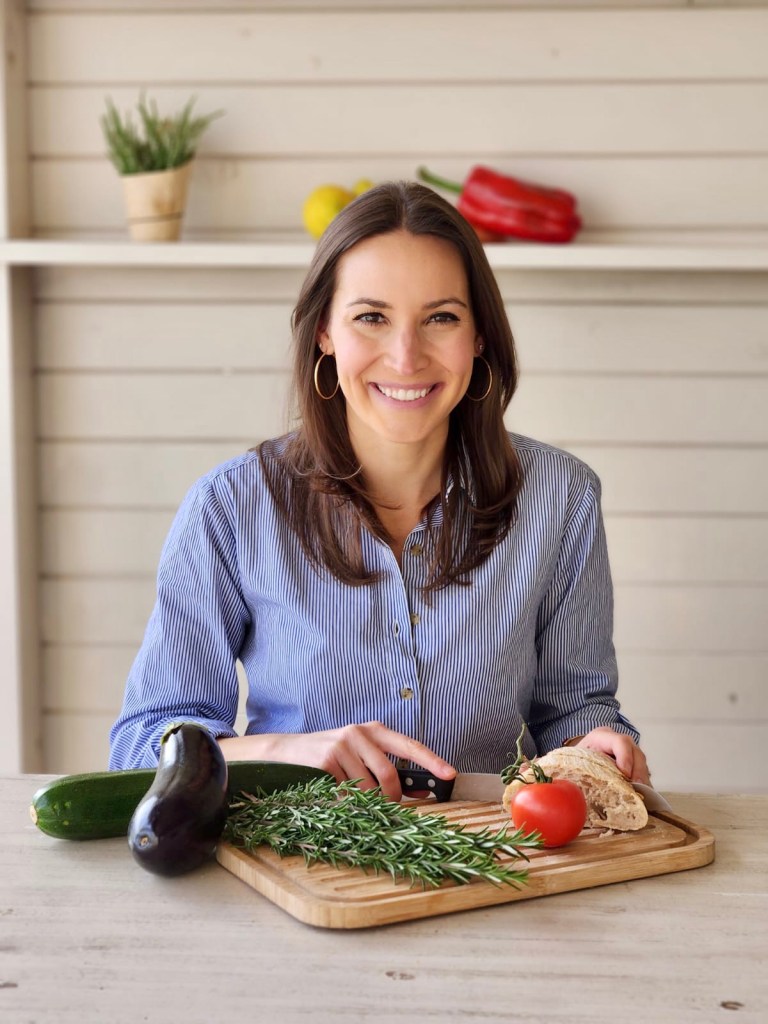Your cart is currently empty!
Pregnancy Superfoods From a Prenatal Dietitian

Pregnancy nutrition so often focuses on which foods to avoid. While it is important to understand which foods should be avoided during pregnancy, it’s also important to understand which foods contain important nutrients for pregnancy. As a prenatal dietitian, I will be sharing some of my favorite pregnancy superfoods.
During pregnancy, nutrition is more important than ever. Pregnancy nutrition is important so that you can meet the increased nutritional needs to support the baby’s growth and development. While there are no superfoods that guarantee a perfect pregnancy or any sort of health outcomes, these three foods contain nutrients that are particularly important throughout pregnancy.

Eggs:
Eggs are a nutrient-dense food that are an accessible and relatively affordable source of protein. Not only do eggs contain protein and fat, but they also contain several micronutrients, some of which are difficult to find in other foods. Many of the vitamins and minerals found in eggs come from the egg yolks, so it’s important to consume the entire egg for those nutritional benefits.
Eggs are one of the best sources of dietary choline. Two eggs meet over 50% of your daily needs! Choline is essential for the synthesis of structural components of the cell membrane, brain development, nervous system function, and gene expression. Choline may even play a role in reducing the risk of neural tube defects (1). Unfortunately, many prenatal vitamins do not contain sufficient choline, if any at all.
In addition to choline, eggs also contain vitamin D, vitamin A, riboflavin, pantothenic acid, vitamin B12, phosphorus, and selenium (2). To avoid the risk of foodborne illnesses, like salmonella, cook eggs to a minimum internal cooking temperature of 160 degrees prior to consuming (3).
Salmon:
Salmon is a great source of protein and contains omega-3 fatty acids, vitamin D, iodine, iron, and choline. Salmon specifically contains the omega-3 fatty acid, DHA, which is important for the baby’s brain development. Pregnant women can meet the recommended dose of DHA by consuming 8-12 oz of low mercury, fatty fish per week (4). In addition to salmon, fatty fish like skipjack tuna, herring, and sardines are also low mercury fish that contain DHA.
Note: Different types of tuna contain different amounts of mercury. It’s important to understand which fish are low in mercury and safe to consume when pregnant as well as portion sizes to consume. For more information about the levels of mercury in various fish as well as servings sizes of fish during pregnancy, visit https://www.fda.gov/food/consumers/advice-about-eating-fish
Variety of Non-starchy Vegetables:
Non-starchy vegetables are foods like leafy greens, peppers, broccoli, brussel sprouts, cauliflower, eggplant, and more. On the other hand, plant foods like potatoes and winter squashes are considered starchy vegetables. Non-starchy vegetables are rich in vitamins, minerals, antioxidants, and fiber. Fiber helps with satiety, blood sugar control, and supports healthy digestion.
To avoid the risk of foodborne illness, always wash fruits and vegetables prior to consuming. Additionally, avoid purchasing pre-cut fruits and vegetables or salad kits as these foods are more commonly associated with outbreaks of foodborne illnesses (5,6). Instead, purchase the whole fruit or vegetable and cut it yourself.
Conclusion:
When pregnant, it’s important to focus on consuming nutrient-dense, whole foods as much as possible. Eggs, salmon, and non-starchy vegetables are pregnancy superfoods that contain key nutrients for pregnancy. This is by no means a comprehensive list and there are certainly other nutrient-dense foods that are important for pregnancy.
References:
- https://ods.od.nih.gov/factsheets/Choline-HealthProfessional/
- https://www.ncbi.nlm.nih.gov/pmc/articles/PMC6865885/
- https://www.foodsafety.gov/people-at-risk/pregnant-women
- https://www.dietaryguidelines.gov/sites/default/files/2020-12/Dietary_Guidelines_for_Americans_2020-2025.pdf
- https://www.fda.gov/food/people-risk-foodborne-illness/medical-professionals-fast-facts-food-safety-moms-be#:~:text=Pregnant%20women%20are%20in%20the
- https://www.cdc.gov/foodsafety/outbreaks/lists/outbreaks-list.html?CDC_AA_refVal=https%3A%2F%2Fwww.cdc.gov%2Ffoodsafety%2Foutbreaks%2Fmultistate-outbreaks%2Foutbreaks-list.html

Mel is a Registered Dietitian who is passionate about helping women nourish themselves and feel their best during the preconception, prenatal, and postpartum times. She has a Bachelors degree in Biological Engineering from Cornell University and a Masters degree in Nutrition from Teachers College, Columbia University.
2 responses to “Pregnancy Superfoods From a Prenatal Dietitian”
-
[…] are a pregnancy superfood! They are a great source of protein and one of the best dietary sources of choline, a nutrient that […]
-
[…] Omelette with eggs, kale, tomatoes, and peppers. Eggs are one of my favorite foods for pregnancy! The eggs contain iron, the kale is a plant source of iron, and the tomatoes and peppers contain […]
About Mel

Hi, I’m Mel! I am a Registered Dietitian who is passionate about helping women nourish themselves and feel their best during the preconception, prenatal, and postpartum times. I provide evidence-based care to help women make the best nutritional choices to support themselves.
I guide women in making the right meal and nutrient choices without sacrificing the foods that they love. Everyone is unique, which is why I have an individualized approach and focus on how to make nutrition work for you and your lifestyle. Read More
Subscribe
Enter your email address to receive Well By Mel Nutrition's latest women's nutrition content by email.
Recent Posts
- Why You Shouldn’t Try To Lose The Baby Weight Fast

- Nutrition to Help Boost Fertility Naturally

- What To Look For In A Prenatal Vitamin

- Healthy Breakfast Ideas For Pregnancy

- Iron-Rich Foods For Pregnancy

Not sure what to eat during pregnancy?
Get the Nourished Pregnancy Guide!
-
 Nourished Pregnancy Guide$29.99
Nourished Pregnancy Guide$29.99

Leave a Reply